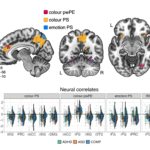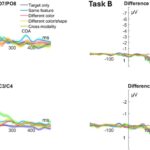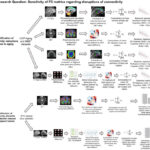A new study by Plank and colleagues (2025) challenges previous assumptions about how individuals with autism spectrum disorder (ASD) and attention-deficit/hyperactivity disorder (ADHD) process prediction errors. The research, published in Imaging Neuroscience, investigated whether modifications in prediction error processing are domain-specific in ASD (e.g., only for social stimuli) but domain-general in ADHD (e.g., across various stimuli).
Contrary to some prior theories, the study found no significant differences in the neural correlates of precision-weighted prediction errors (pwPE) or prediction strength (PS) for either low-level visual features (colors) or complex social information (emotions) in unattended, task-irrelevant faces when comparing adults with ASD, ADHD, and a neurotypical comparison group. This suggests that implicit, task-irrelevant predictive processing may remain intact in these neurodevelopmental disorders.
The researchers used a multi-feature roving visual mismatch paradigm in an MRI scanner, where participants focused on a fixation cross while faces with varying colors and emotions were presented in the periphery. They utilized a Hierarchical Gaussian Filter to model prediction strength and precision-weighted prediction errors for colors and emotions separately.While the study replicated some findings regarding neural correlates of color pwPE and emotion PS in the pooled sample, it did not observe neural correlates for emotion pwPE, suggesting that the emotional expressions in the task might not have been salient enough to elicit these error signals. The authors also noted that the inclusion of medicated participants in the ADHD group might have influenced the results by potentially normalizing neural activity.The findings indicate that explicit attention and relevance of stimuli might be crucial factors in observing prediction error modifications in autism, as previous studies with task-relevant stimuli have shown differences. This research contributes to a deeper understanding of predictive processing in ASD and ADHD, suggesting a potential preservation of implicit prediction error mechanisms.
Reference
Plank, I. S., Yurova, A., Pior, A., Nowak, J., Bierlich, A. M., Papazov, B., Shi, Z., & Falter-Wagner, C. M. (2025). Are prediction error modifications domain-specific in autism but domain-general in ADHD? Imaging Neuroscience (Cambridge, Mass.). https://doi.org/10.1162/imag.a.942





